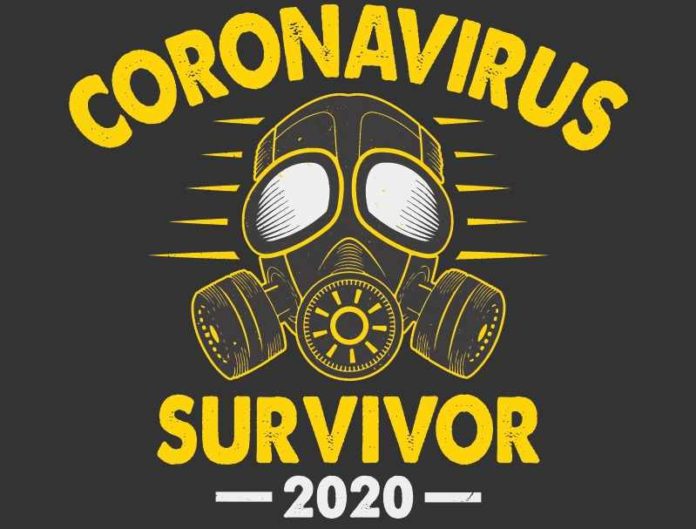With great crisis comes great opportunity. Covid-19 has not only brought the US’s economy to its knees, but it has also destabilized markets on a global scale. Indeed, it would not be hyperbolic to suggest that the social and economic uncertainty created by the Coronavirus is actually unprecedented and with the advent of social media and the ubiquity of digital media platforms, the perception and awareness of the virus is unrivaled and all consuming.
But even in these darkest of times, we see the grit and spirit of the American entrepreneur shine through with new businesses being created in real time. This is not mere optimism but a demonstrably true reality, evidenced by the swelling of activity in the trademark register of the United States Patent and Trademark Office (USPTO) for trademark applications anchoring the word “Coronavirus.”. Let’s dig in a bit more to understand the significance and application of these trademarks.
Trademark Fundamentals: A Primer
A trademark is fundamentally, a source identifier and may be a name, logo, or phrase that when attached to a good or service, communicates to the consumer the source-company of the good or service. Consider the iconic NIKE Swoosh; when a consumer in the market for shoes sees the “swoosh” logo on the side of a tennis shoe, he/she immediately understands that the shoe was created by the Nike Corporation and is therefore more (or less) likely to buy the shoe as a function of the beliefs the consumer has about the NIKE company.
Thus, in its simplest formation, a trademark is comprised of two elements; the mark itself (name, logo, slogan) and the goods/services sold under the banner of the mark. When a trademark holder is assigned a USPTO trademark registration on the mark, he/she is conferred with the sole and proprietary right to use the mark in conjunction with the goods/services designated in the trademark application. Any use of the mark, or a sufficiently similar iteration of the mark, in conjunction with sufficiently similar goods/services by an unauthorized party, would be considered trademark infringement of the holder’s rights and subject to legal action and penalties.
Coronavirus Trademarks
Over the last couple of months, the USPTO has been inundated with “Coronavirus” trademarks and as of this April 7th writing, there have been over 20 such marks submitted for registration by different applicants. Here is a snapshot of arguably the 10 most interesting of the lot:
- CORONAVIRUS
- #CORONAVIRUS
- CORONAVIRUS: MADE IN CHINA
- FXCK CORONAVIRUS
- CORONAVIRUS SURVIVOR
- CORONAVIRUS INFECTED
- THE CORONAVIRUS BLUES
- MY CORONAVIRUS EXPERIENCE
- CORONAVIRUSOUTBREAK
- I BEAT THE CORONAVIRUS
Clearly, all of these applicants believe that consumers are presently (or will be shortly) in the market for products bearing the name CORONAVIRUS and want to lock down the sole right to sell goods tethered to the word, CORONAVIRUS.
Indeed, as we have covered earlier in this article, the mark itself is only one element of a registered trademark; the second element is the goods represented by the mark. What are some of the goods assigned to the marks listed above? While there are a number of different goods listed, many of these marks, unsurprisingly, have elected to tether their marks to Apparel, namely for t-shirts, hats, pants etc.
Why is Apparel the most common category of goods? Well, quite simply, because clothing is both easy to manufacture and it is something that is readily subject to trendy adoption by the public. An applicant might think, “Who wouldn’t want to wear a hat that says FXCK CORONAVIRUS on it?” Would you wear a hat with FXCK CORONAVIRUS on it? Maybe yes, maybe no but the possibility is certainly there.
Will These Trademarks Actually Register?
More likely than not, for most applicants, the eagerly pursued proprietary right to use CORONAVIRUS, will likely prove to be unattainable. A cornerstone feature of trademark law is that the mark must be sufficiently distinct and the broader its use and commonality in the pubic space, the less right any single individual has to monopolize its use. Thus, while an applicant may obtain the sole right to sell clothing under the mark FXCK CORONAVIRUS, an applicant will likely not be able to stop a competitor from using CORONAVIRUS in another formulation.
The American spirit will not and cannot be subdued. Happy hunting.
Abe Cohn is an attorney at Cohn Legal, PLLC, a law firm designed specifically to provide a boutique experience for entrepreneurs.
Covid-19 stock photo by artworkxfaisal/Shutterstock







